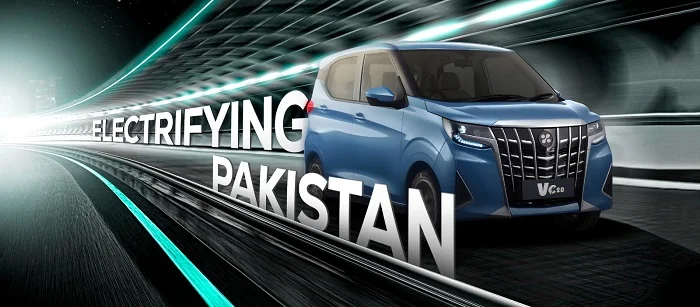Introduction
Pakistan is witnessing a significant transformation in its automotive landscape with the rising popularity of electric vehicles (EVs). The government has initiated several incentives to promote this transition, aiming to reduce the country’s dependency on oil and foster cleaner energy solutions. This shift not only impacts the automotive industry but also has profound implications for power demand and infrastructure investments.
In this blog post, we will explore the driving forces behind this shift towards EVs, the role of government policies, and the broader implications for Pakistan’s energy landscape.
Understanding Electric Vehicles
Electric vehicles are powered by electric motors, using energy stored in rechargeable batteries. Unlike conventional vehicles that rely on fossil fuels, EVs offer a cleaner, more efficient alternative that emits no tailpipe pollutants. This technological shift aligns with global trends towards sustainability, particularly in response to climate change.
Government Incentives for Electric Vehicles
The Pakistani government has introduced a range of incentives aimed at encouraging the adoption of electric vehicles:
- Tax Reductions and Exemptions: The government has reduced customs duties on EV imports and offered tax exemptions to manufacturers producing electric vehicles locally. This significantly lowers the price barrier for consumers and makes EVs more accessible.
- Subsidies for EV Purchases: Financial incentives, including direct subsidies for EV buyers, have been established. These subsidies make purchasing an electric vehicle financially appealing, especially for middle-class families.
- Infrastructure Development: The government is investing in charging infrastructure, including public charging stations, to alleviate range anxiety among potential EV users. This is critical for ensuring that EV owners can recharge their vehicles conveniently.
- Policy Framework: The introduction of a comprehensive Electric Vehicle Policy outlines the government’s long-term vision for the EV market, which includes regulatory measures, timelines, and targets for electric vehicle adoption.
Benefits of Electric Vehicles
- Reducing Oil Dependency: With a significant portion of Pakistan’s energy needs met through imported oil, transitioning to electric vehicles helps decrease reliance on foreign oil sources. This shift can improve energy security and stabilize the economy.
- Cleaner Energy and Environmental Impact: EVs contribute to cleaner air quality by reducing greenhouse gas emissions. As Pakistan shifts towards renewable energy sources, such as solar and wind, the environmental benefits of EVs will be amplified.
- Economic Growth: The electric vehicle industry can stimulate local economies by creating jobs in manufacturing, installation of charging infrastructure, and maintenance services. This can be particularly beneficial in developing regions of the country.
- Enhanced Energy Efficiency: Electric vehicles are more energy-efficient than their gasoline or diesel counterparts. This efficiency translates into lower operational costs for consumers and a reduction in the overall demand for oil.
Impact on Power Demand
The increasing adoption of electric vehicles will have a significant impact on power demand in Pakistan. As more households and businesses begin to rely on electric vehicles, the electricity demand will rise. This change necessitates:
- Upgraded Power Infrastructure: To meet the growing demand, Pakistan’s power grid will require substantial upgrades. Investments in smart grid technology will be essential to manage the increased load and ensure reliable service.
- Renewable Energy Integration: The surge in EVs presents an opportunity to expand renewable energy sources. By integrating EV charging with renewable energy production, Pakistan can create a sustainable energy cycle that reduces emissions and dependence on fossil fuels.
- Incentivizing Off-Peak Charging: To minimize the strain on the power grid, policies that promote off-peak charging for EVs can be beneficial. This could involve providing lower electricity rates during non-peak hours, encouraging consumers to charge their vehicles when demand is lower.
Challenges to Overcome
While the shift to electric vehicles presents numerous opportunities, there are challenges that need to be addressed:
- Charging Infrastructure: Although the government is investing in charging stations, the current infrastructure is still in its infancy. Expanding this network is crucial to support widespread EV adoption.
- Public Awareness: There is a need for greater public awareness about the benefits of electric vehicles. Educational campaigns can help consumers understand the advantages of switching to EVs.
- Initial Costs: The upfront cost of electric vehicles remains a significant barrier for many potential buyers. Continued financial incentives and subsidies will be necessary to make EVs more affordable for the average consumer.
- Battery Technology and Disposal: As the number of electric vehicles increases, so does the need for sustainable battery technology and disposal solutions. Developing a circular economy for EV batteries will be essential to mitigate environmental impacts.
Conclusion
The influx of electric vehicles in Pakistan marks a pivotal moment in the country’s journey towards a more sustainable future. With government incentives paving the way, the transition from fossil fuels to electric mobility is not just beneficial for reducing oil dependency but also for promoting cleaner energy. As the power demand evolves, strategic investments in infrastructure and renewable energy will be essential to support this growing sector. By addressing the associated challenges and fostering public awareness, Pakistan can solidify its position as a leader in the electric vehicle revolution.

